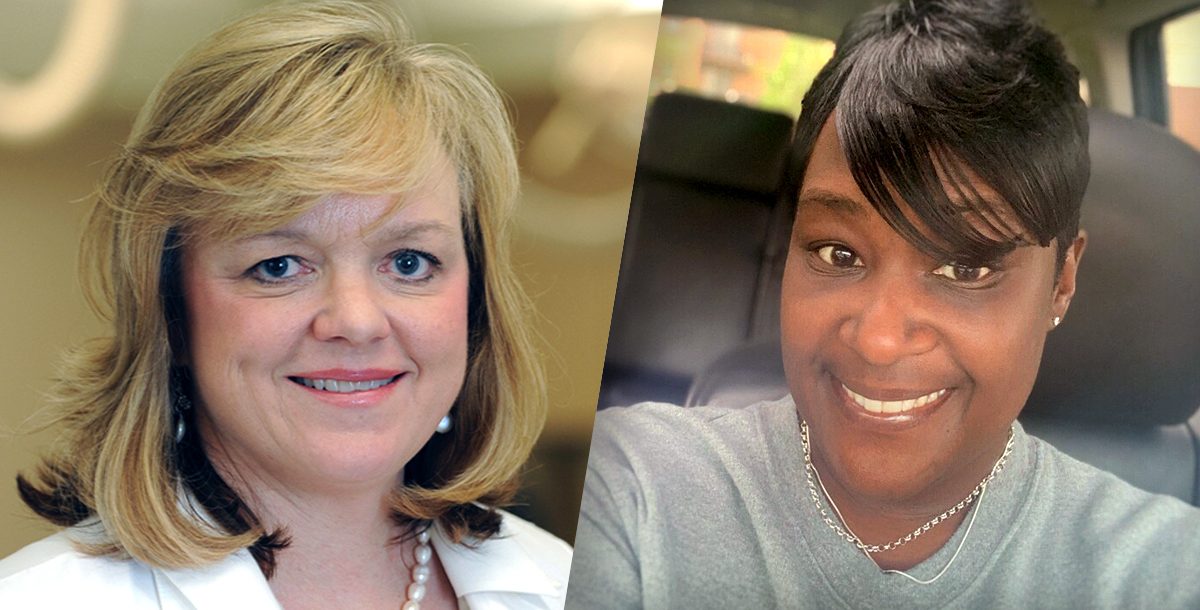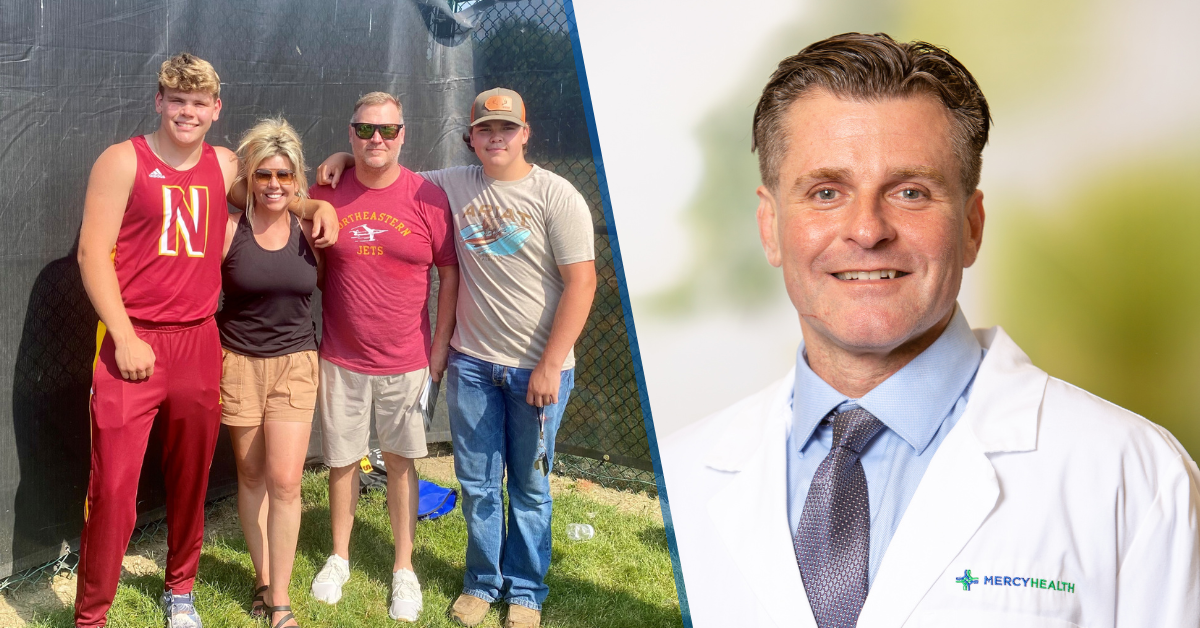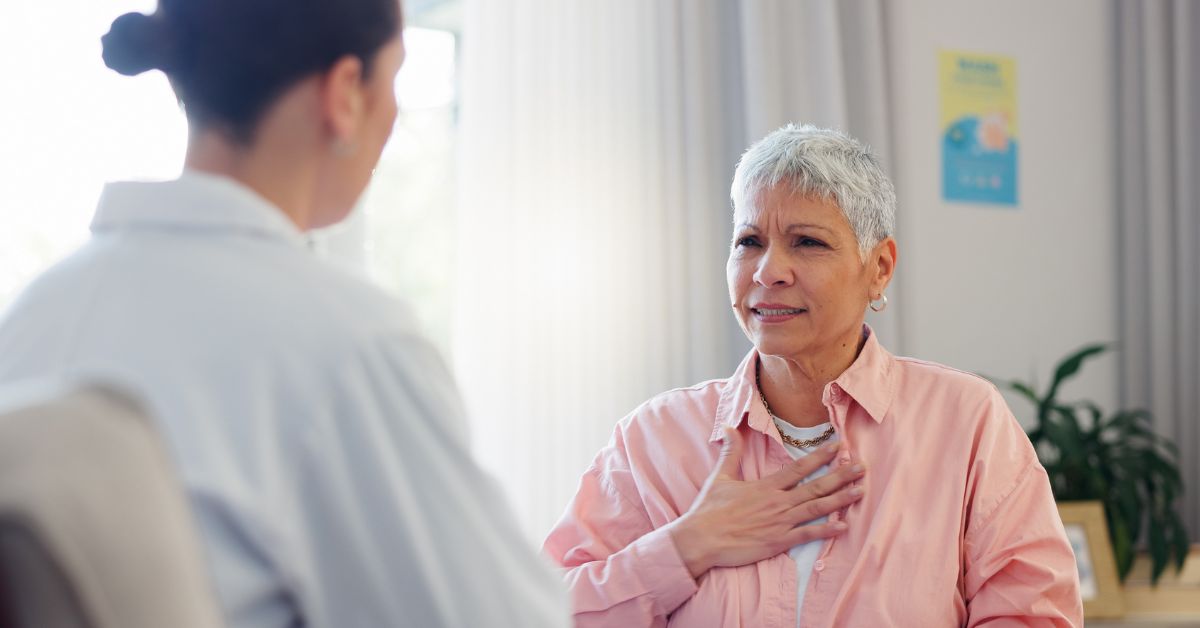Monday, May 13, 2019 was a busy day for Brooke Cook. The 39-year old single mom and teacher finished up with her classes at Cincinnati Public Schools before heading to a staff meeting. She’d had what she assumed was a nagging case of heartburn the whole day and felt extremely tired. There was also a feeling of discomfort that came and went.
“The staff meeting was the on second floor at end of day. By the time I got there, my back was soaking wet,” says Brooke (pictured above right). “There was no pain. I was not hot. I just didn’t know what was going on.”
Following the meeting, she went to pick up her daughter before cooking dinner and doing a load of laundry. The feeling of discomfort came back and Brooke lay down.
“I remember hearing somewhere that if that feeling doesn’t go away when you lay down, that’s an issue,” says Brooke.
The feeling remained and Brooke called a friend to take her to the emergency room.
At Mercy Health – Fairfield Hospital, Brooke had an EKG and dye test before falling asleep.
“When the results from the dye test came in, they immediately woke me up. They told me, ‘We’ve called the team. We have to hurry up. You are having a heart attack,’” recalls Brooke. “I didn’t even have time to be afraid or scared.”
Brooke had two arteries that were fully clogged and had the first of two stents placed that day. She was in the hospital for one week and left for home with a life vest and an appointment for her next stent placement on July 1.
Despite what she’d gone through, Brooke felt great.
“To have a great team available nearby at Fairfield Hospital was amazing. I felt so much better after the heart attack, I took MY daughter to the zoo the day after I left the hospital,” she says. “I was so grateful to be alive.”
Brooke’s cardiologist, Lynne Wagoner, MD, (pictured above left) notes that Brooke is not her typical heart attack patient. She’s young and doesn’t have the risk factors that obesity, high blood pressure and diabetes can bring.
“Her mom does have a defibrillator, which indicates that her heart issues are genetic,” shares Dr. Wagoner. “Women’s symptoms of a heart attack are usually less intense than what a man would experience. And most women do not use the word ‘pain’ to describe their symptoms.”
“Any symptom above the waist (discomfort, ache, indigestion, jaw pain, arm pain, upper back pain) that occurs with activity and improves with rest should be checked out by a physician,” Dr. Wagoner continues. “Women should pay attention to their bodies, and just like Brooke did, seek attention when symptoms don’t feel right. Putting off seeking attention can lead to heart damage and heart failure, so getting evaluated early is extremely important!”
Now 41, Brooke notes that there’s still so much she needs to do.
“I’m getting used to having cardiologists. I have a great team,” she says.
She made sure her family got checked out after her heart attack and has regular visits with her providers.
“My mom always made sure we were aware of our health and took preventive steps, like having check-ups,” she says. “I am thankful for the way I was raised.”
Want to learn more about your heart health? Learn more about screenings to monitor your heart health or find a provider near you.






